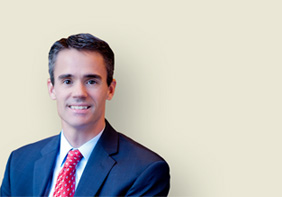What Can A Surgeon Teach Us About Making Decisions?
It’s a big year for my family as we’re preparing for each of our three kids to move on to new schools this Fall. It has been interesting to watch as each of them has had a decision to make regarding their school of choice. It wasn’t simple—for them or us.
For example, my fourteen-year-old son had the following two options in front of him: to follow in his sisters’ footsteps and attend our local high school or to step out of his comfort zone and explore another school that was further away. The way that we helped him decide, I believe can also be a solid framework for financial planning decisions that we make.
As advisors and planners, we see many clients needing to make decisions. These “waypoints” (an intentional reference to our firm’s name) can be confusing and difficult. Our job, I believe is to be a sounding board to listen and help reflect back to you the information so you can hear yourself think through it, and make the most wise financial choice you can. Questions like these come up:
Should you retire?
Should you move out of state?
Should you start Social Security now, or wait it out?
Sometimes these decisions are easier to make than others. The numbers just need to be worked out and then you decide and we move on. No problem.
Other times we get caught up and worried (scared even) and have a hard time knowing what to do.
The world-renowned surgeon from Baltimore, Ben Carson, wrote about this in his book “Take the Risk”. Faced with life or death decisions about how to proceed with brain surgery on a patient, he came up with a model that helped him decide on how to move forward – something he refers to as a “Best/Worst Analysis (B/WA) formula”:
He would ask himself the following questions:
1. What’s the best thing that can happen if I do this?
2. What’s the worst thing that can happen if I do this?
3. What’s the best thing that can happen if I don’t do this?
4. What’s the worst thing that can happen if I don’t do this?
Using his example in the book, he laid out each answer to guide him with whether to perform life or death brain stem surgery on a young boy (makes many of our decisions sound easier, doesn’t it!) and came to the following conclusion (to paraphrase):
-Best case / if we do operate: …might “have a chance to do something that could make a difference” for the boy.
-Worst case / if we do operate: it could be fatal.
-Best case / do NOT operate: “There was no best thing…” (this was obviously a terminal situation).
-Worst case / do NOT operate: in this case, the situation was also terminal; he was not going to make it.
When put in this context, the decision became clearer and gave Dr. Carson and the boys’ parents the confidence for going forward with surgery (and spoiler alert – “Christopher” survived and did just fine).
So how about you? Do you have a big decision that you’re wrestling with?
With what I commonly experience with many of you, a hypothetical situation might look like the following:
-What is the best thing that can happen if I do retire?
-What is the worst thing that can happen if I do retire?
-What is the best thing that can happen if I don’t retire?
-What is the worst thing that can happen if I don’t retire?
Since each client is different, I’ll leave the above as a “fill in the blank” exercise for you to think through and draw your own conclusion.
In my son’s case, thinking through these four questions helped him to realize that with both schools, the “best case” was the same (great education). When he thought through the downside, however, he said he didn’t want to look back and regret not taking the chance and experiencing something new. He was able to finally isolate and clarify what became one of the most important issues for him. And once that was done, he could move forward with his decision with confidence.
As is the case with most of our decisions, time will tell if his stepping out and choosing the school further away from home will be the best course of action. But he feels good about his decision (and as his proud dad, I’ll take it!).
How about you? Could this framework help you or a family member or friend to think through a decision you have coming up? If so, please let us know if this is helpful!

Posted by:
Pete Dixon, CFP®
Partner and Advisor










